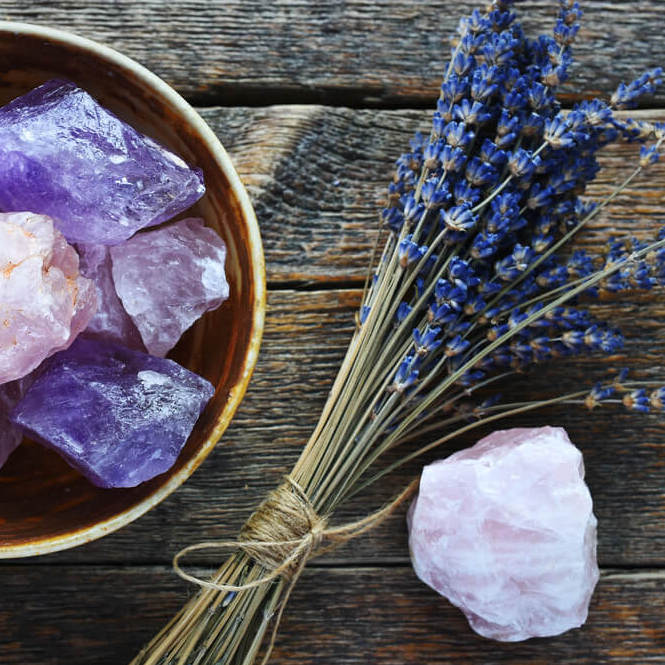5 Minute Read
Words by WYLDE MOON staff writer

Charlotte Lewis explains how one in five people have highly sensitive brains, which means making time for self-care is even more vital for your mental well-being.
Do you over-think or over-feel? Are you sensitive to other people’s moods and always the friend who reads the room when someone is feeling hurt or upset? Are you the one people come to because of your empathy and sympathy, but last on the list when it comes to prioritising your own emotional needs and wellbeing?
If you sense your brain processes your surroundings, emotions, sensory experiences and feelings at a much more intense level than the rest of the population you could be one of the 15-20% of the population who are highly sensitive.
As a highly sensitive person your brain processes everything you experience at a much deeper level.

People with sensitive brains can be deeply affected by other people’s moods
Research shows it can also mean you’re more likely to experience burn out which is why you need to prioritise looking after yourself and look out for the signs.
Highly sensitive people use a part of the brain called the “seat of consciousness” that integrates inner and outer information.
How a highly sensitive person’s brain reacts to certain chemicals can be more intense compared to other people. The key chemicals are serotonin, a chemical that carries messages between nerve cells in the brain and throughout your body, dopamine, a chemical released in the brain that makes you feel good and norepinephrine, which plays an essential role in the regulation of arousal, attention and cognitive function.
“How a highly sensitive person’s brain reacts to certain chemicals can be more intense compared to other people”
Traits of people with high sensitivity include…
- Being easily able to accurately get a good sense of other people.
- Knowing how people are feeling without them having to tell you.
- Naturally empathising with others.
- Being naturally intuitive and perhaps even spiritual.
- Having a deep appreciation for nature, music, the arts and beauty.
- Displaying a high emotional intelligence.
- Being a deep thinker, enjoying time in meditation and contemplation.
- Deeply affected by other people’s moods.
- Easily overwhelmed by strong sensory input or when there is a lot going on at once.
- Easily startled.
If a number of these sound familiar it is no surprise processing them all can be a lot to deal with. Even when at rest, a highly sensitive person’s brain works harder and processes more deeply than others.
While it is great to connect emotionally with so many different kinds of people, many highly sensitive people also struggle to create clear protective boundaries for themselves. It is quite common for them to take on too much of other people’s emotional baggage.
A highly active brain combined with taking on caring for too many others can result in burnout. If you don’t prioritise your self-care the world can feel too much at times and you can struggle emotionally and physically.
Spot the signs of burnout
- Increased alertness and anxiety.
- Erratic sleep patterns.
- Emotional exhaustion or compassion fatigue: feeling easily overwhelmed by people and situations.
- Tense body: sore muscles in the neck & shoulders area, headaches, tense jaws, back pain.
- Brain fog, finding it hard to concentrate.
- Irritability, reduced connection, and empathy with loved ones.
- Sensory overload (to sounds, lights, smells, temperature changes, etc.).
So, start by embracing your sensitivity as a strength. When you understand who you are and how you respond to your environment, then you can learn the tools to manage it.
The important thing to remember is you don’t need to empathise or understand others all of the time. You have unique strengths you can use for the people who appreciate you and you can’t carry everyone else’s problems.

Burnout can cause erratic sleep patterns.
Don’t feel guilty for making time to re-energise and maintain your boundaries. Take good care of yourself by getting enough rest, delegating tasks and saying no to what may overwhelm you. Try regular meditation, exercise and a healthy diet. Take time away from screens and, if you can, aim for eight hours sleep.
Being a highly sensitive person can be a gift if you listen to your powerful intuition and surround yourself with people who appreciate you and respect the fact that your caring nature has limits.
About the author – Charlotte Lewis (BSc & MSc Psychology) is a Holistic Psychology expert, founder of @MyPsychologyCoach, writer and media contributor.
RELATED: HOW TO TELL IF YOU’RE BURNT OUT (IT’S DIFFERENT TO BEING STRESSED)
Share this article…





